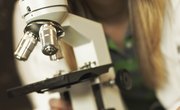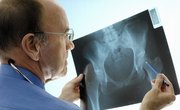Ultrasound technicians, also known as diagnostic medical sonographers, use sound waves to look inside patients' bodies in order to access and diagnose various medical conditions. While best known for checking fetal health, diagnostic medical sonographers also use sound waves to help physicians diagnose problems in the chest cavity and elsewhere in the body. High school students interested in pursuing this career can get started by adding appropriate classes to their schedule.
Take as Many Science Courses as Possible
When entering a medical profession, a thorough knowledge of the sciences is a must. CityTownInfo.com suggests that high school students interested in becoming diagnostic medical sonographers can improve their chances of success by taking physics, biology, physiology and anatomy. Good grades in these subjects will not only help with acceptance into an appropriate college but will also help the student succeed in his or her coursework.
Take Math and Computer Skills Classes
According to Campus Explorer, ultrasound technicians have to perform various calculations after taking their initial measurements, so high school students who want to get into this field should make sure to get good grades in all of their math classes, including algebra. Classes focusing on computer skills can also be helpful to aspiring diagnostic medical sonographers, as it will be their responsibility to use and maintain the relevant sonography equipment.
Take Advanced English Classes
To be successful, a diagnostic medical sonographer must have great communication skills, according to U.S. News & World Report. Sonographers are often among the first medical professionals to work with certain patients, so it's essential they know how to express themselves in a clear, friendly manner. While collecting information about the patient's relevant medical history, ultrasound technicians should be able to explain the sonogram procedure in a way that keeps the patient relaxed. Campus Explorer suggests that sonographers require solid writing skills, as it is their responsibility to maintain various patient records. Taking high school English classes -- preferably with advanced placement -- will help develop and sharpen the communication skills necessary for success in this profession.
Job Outlook
According to the Bureau of Labor Statistics, employment for the diagnostic medical sonography profession is expected to grow by 44 percent between 2010 and 2020, which is a much faster growth rate than the average for all other occupations. As the technology gets more advanced, doctors will likely start to favor sonography over invasive diagnostic procedures. The median annual pay for an ultrasound technician was $64,380 in 2010. High school students who choose to pursue employment in this field can rest assured that they've decided on a promising, stable career path.
Related Articles
References
Writer Bio
Bill Reynolds holds a Bachelor's degree in Communications from Rowan University. He has written hundreds of articles for print and online media, drawing inspiration from a wide range of professional experiences. As part of the UCLA Extension Writer's Program, he has been nominated for the James Kirkwood Prize for Creative Writing.











